- Home
- Nora Roberts
Christmas In the Snow: Taming Natasha / Considering Kate Page 7
Christmas In the Snow: Taming Natasha / Considering Kate Read online
Page 7
Did that mean she was no longer in charge of her emotions? No. Did that mean she would act irrationally, impulsively, just because needs and desires had pried their way back into her life? No. Did that mean she would hide in her room, afraid to face a man? A most definite no.
She was only afraid because she had yet to test herself, Natasha thought, moving toward her closet. So tonight she would have dinner with the persistent Dr. Kimball, prove to herself that she was strong and perfectly capable of resisting a fleeting attraction, then get back to normal.
Natasha frowned at her wardrobe. With a restless move of her shoulders she pulled out a deep blue cocktail dress with a jeweled belt. Not that she was dressing for him. He was really irrelevant. It was one of her favorite dresses, Natasha thought as she stripped off her robe, and she rarely had the opportunity to wear anything but work clothes.
He knocked at precisely seven twenty-eight. Natasha detested herself for anxiously watching the clock. She had reapplied her lipstick twice, checked and rechecked the contents of her purse and fervently wished that she had delayed taking her stand.
She was acting like a teenager, Natasha told herself as she walked to the door. It was only dinner, the first and last dinner she intended to share with him. And he was only a man, she added, pulling the door open.
An outrageously attractive man.
He looked wonderful, was all she could think, with his hair swept back from his face, and that half smile in his eyes. It had never occurred to her that a man could be gut-wrenchingly sexy in a suit and a tie.
“Hi.” He held out another red rose.
Natasha nearly sighed. It was a pity the smoke-gray suit didn’t make him seem more professorial. Giving in a little, she tapped the blossom against her cheek. “It wasn’t the roses that changed my mind.”
“About what?”
“About having dinner with you.” She stepped back, deciding that she had no choice but to let him in while she put the flower into water.
He smiled then, fully, and exasperated her by looking charming and cocky at the same time. “What did?”
“I’m hungry.” She set her short velvet jacket on the arm of the sofa. “I’ll put this in water. You can sit if you like.”
She wasn’t going to give him an inch, Spence thought as he watched her walk away. Oddly enough, that only made her more interesting. He took a deep breath, shaking his head. Incredible. Just when he was convinced that nothing smelled sexier than soap, she put something on that made him think of midnight and weeping violins.
Deciding that he was safer thinking of something else, he studied the room. She preferred vivid colors, he mused, noting the emerald and teal slashes of the pillows on a sapphire-blue couch. There was a huge brass urn beside it, stuffed with silky peacock feathers. Candles of varying sizes and shades were set around the room so that it smelled, romantically, of vanilla and jasmine and gardenia. A shelf in the corner was crammed with books that ran the gamut from popular fiction to classic literature by way of home improvements for the novice.
The table surfaces were crowded with mementos, framed pictures, dried bouquets, fanciful statuettes inspired by fairy tales. There was a gingerbread house no bigger than his palm, a girl dressed as Red Riding Hood, a pig peeking out of the window of a tiny straw house, a beautiful woman holding a single glass slipper.
Practical tips on plumbing, passionate colors and fairy tales, he mused, touching a fingertip to the tiny crystal slipper. It was as curious and as intriguing a combination as the woman herself.
Hearing her come back into the room, Spence turned. “These are beautiful,” he said, gesturing to one of the figures. “Freddie’s eyes would pop out.”
“Thank you. My brother makes them.”
“Makes them?” Fascinated, Spence picked up the gingerbread house to study it more closely. It was carved from polished wood, then intricately painted so that each licorice whip and lollipop looked good enough to eat. “It’s incredible. You rarely see workmanship like this.”
Whatever her reservations, she warmed toward him and crossed the room to join him. “He’s been carving and sculpting since he was a child. One day his art will be in galleries and museums.”
“It should be already.”
The sincerity in his voice hit her most vulnerable spot, her love of family. “It’s not so easy. He’s young and hardheaded and proud, so he keeps his job, hammering wood, instead of carving it to bring in money for the family. But one day…” She smiled at the collection. “He makes these for me, because I struggled so hard to learn to read English from this book of fairy tales I found in the boxes of things the church gave us when we came to New York. The pictures were so pretty, and I wanted so badly to know the stories that went with them.”
She caught herself, embarrassed to have said anything. “We should go.”
He only nodded, having already decided to pry gently until she told him more. “You should wear your jacket.” He lifted it from the sofa. “It’s getting chilly.”
The restaurant he’d chosen was only a short drive away and sat on one of the wooded hills that overlooked the Potomac. If Natasha had been given a guess, she would have been on target with his preference for a quiet, elegant backdrop and discreetly speedy service. Over her first glass of wine, she told herself to relax and enjoy.
“Freddie was in the shop today.”
“So I heard.” Amused, Spence lifted his own glass. “She wants her hair curled.”
Natasha’s puzzled look became a smile; she lifted a hand to her own. “Oh. That’s sweet.”
“Easy for you to say. I’ve just gotten the hang of pigtails.”
To her surprise, Natasha could easily picture him patiently braiding the soft, flaxen tresses. “She’s beautiful.” The image of him holding the girl on his lap at the piano slipped back into her mind. “She has your eyes.”
“Don’t look now,” Spence murmured, “but I believe you’ve given me a compliment.”
Feeling awkward, Natasha lifted the menu. “To soften the blow,” she told him. “I’m about to make up for skipping lunch this afternoon.”
True to her word, she ordered generously. As long as she was eating, Natasha figured, the interlude would go smoothly. Over appetizers she was careful to steer the conversation toward subjects they had touched on in class. Comfortably they discussed late fifteenth-century music with its four-part harmonies and traveling musicians. Spence appreciated her genuine curiosity and interest, but was equally determined to explore more personal areas.
“Tell me about your family.”
Natasha slipped a hot, butter-drenched morsel of lobster into her mouth, enjoying the delicate, almost decadent flavor. “I’m the oldest of four,” she began, then became abruptly aware that his fingertips were playing casually with hers on the tablecloth. She slid her hand out of reach.
Her maneuver had him lifting his glass to hide a smile. “Are you all spies?”
A flicker of temper joined the lights that the candle brought to her eyes. “Certainly not.”
“I wondered, since you seem so reluctant to talk about them.” His face sober, he leaned toward her. “Say ‘Get moose and squirrel.’”
Her mouth quivered before she gave up and laughed. “No.” She dipped her lobster in melted butter again, coating it slowly, enjoying the scent, then the taste and texture. “I have two brothers and a sister. My parents still live in Brooklyn.”
“Why did you move here, to West Virginia?”
“I wanted a change.” She lifted a shoulder. “Didn’t you?”
“Yes.” A faint line appeared between his brows as he studied her. “You said you were about Freddie’s age when you came to the States. Do you remember much about your life before that?”
“Of course.” For some reason she sensed he was thinking more of his daughter than of her own memories of the Ukraine. “I’ve always believed impressions made on us in those first few years stay the longest. Good or bad, they help form what
we are.” Concerned, she leaned closer, smiling. “Tell me, when you think about being five, what do you remember?”
“Sitting at the piano, doing scales.” It came so clearly that he nearly laughed. “Smelling hothouse roses and watching the snow outside the window. Being torn between finishing my practice and getting to the park to throw snowballs at my nanny.”
“Your nanny,” Natasha repeated, but with a chuckle rather than a sneer he noted. She cupped her chin in her hands, leaning closer, alluring him with the play of light and shadow over her face. “And what did you do?”
“Both.”
“A responsible child.”
He ran a fingertip down her wrist and surprised a shiver out of her. Before she moved her hand away, he felt her pulse scramble. “What do you remember about being five?”
Because her reaction annoyed her, she was determined to show him nothing. She only shrugged. “My father bringing in wood for the fire, his hair and coat all covered with snow. The baby crying—my youngest brother. The smell of the bread my mother had baked. Pretending to be asleep while I listened to Papa talk to her about escape.”
“Were you afraid?”
“Yes.” Her eyes blurred with the memory. She didn’t often look back, didn’t often need to. But when she did, it came not with the watery look of old dreams, but clear as glass. “Oh, yes. Very afraid. More than I will ever be again.”
“Will you tell me?”
“Why?”
His eyes were dark, and fixed on her face. “Because I’d like to understand.”
She started to pass it off, even had the words in her mind. But the memory remained too vivid. “We waited until spring and took only what we could carry. We told no one, no one at all, and set off in the wagon. Papa said we were going to visit my mother’s sister who lived in the west. But I think there were some who knew, who watched us go with tired faces and big eyes. Papa had papers, badly forged, but he had a map and hoped we would avoid the border guards.”
“And you were only five?”
“Nearly six by then.” Thinking, she ran a fingertip around and around the rim of her glass. “Mikhail was between four and five, Alex just two. At night, if we could risk a fire, we would sit around it and Papa would tell stories. Those were good nights. We would fall asleep listening to his voice and smelling the smoke from the fire. We went over the mountains and into Hungary. It took us ninety-three days.”
He couldn’t imagine it, not even when he could see it reflected so clearly in her eyes. Her voice was low, but the emotions were all there, bringing it richness. Thinking of the little girl, he took her hand and waited for her to go on.
“My father had planned for years. Perhaps he had dreamed it all of his life. He had names, people who would help defectors. There was war, the cold one, but I was too young to understand. I understood the fear, in my parents, in the others who helped us. We were smuggled out of Hungary into Austria. The church sponsored us, brought us to America. It was a long time before I stopped waiting for the police to come and take my father away.”
She brought herself back, embarrassed to have spoken of it, surprised to find her hand caught firmly in his.
“That’s a lot for a child to deal with.”
“I also remember eating my first hot dog.” She smiled and picked up her wine again. She never spoke of that time, never. Not even with family. Now that she had, with him, she felt a desperate need to change the subject. “And the day my father brought home our first television. No childhood, even one with nannies, is ever completely secure. But we grow up. I’m a businesswoman, and you’re a respected composer. Why don’t you write?” She felt his fingers tense on hers. “I’m sorry,” she said quickly. “I had no business asking that.”
“It’s all right.” His fingers relaxed again. “I don’t write because I can’t.”
She hesitated, then went on impulse. “I know your music. Something that intense doesn’t fade.”
“It hasn’t mattered a great deal in the past couple of years. Just lately it’s begun to matter again.”
“Don’t be patient.”
When he smiled, she shook her head, at once impatient and regal. Her hand was gripping his now, hard and strong.
“No, I mean it. People always say when the time is right, when the mood is right, when the place is right. Years are wasted that way. If my father had waited until we were older, until the trip was safer, we might still be in the Ukraine. There are some things that should be grabbed with both hands and taken. Life can be very, very short.”
He could feel the urgency in the way her hands gripped his. And he could see the shadow of regret in her eyes. The reason for both intrigued him as much as her words.
“You may be right,” he said slowly, then brought the palm of her hand to his lips. “Waiting isn’t always the best answer.”
“It’s getting late.” Natasha pulled her hand free, then balled it into a fist on her lap. But that didn’t stop the heat from spearing her arm. “We should go.”
She was relaxed again when he walked her to her door. During the short drive home he had made her laugh with stories of Freddie’s ploys to interest him in a kitten.
“I think cutting pictures of cats from a magazine to make you a poster was very clever.” She turned to lean back against her front door. “You are going to let her have one?”
“I’m trying not to be a pushover.”
Natasha only smiled. “Big old houses like yours tend to get mice in the winter. In fact, in a house of that size, you’d be wise to take two of JoBeth’s kittens.”
“If Freddie pulls that one on me, I’ll know exactly where she got it.” He twirled one of Natasha’s curls around his fingers. “And you have a quiz coming up next week.”
Natasha lifted both brows. “Blackmail, Dr. Kimball?”
“You bet.”
“I intend to ace your quiz, and I have a strong feeling that Freddie could talk you into taking the entire litter all by herself, if she put her mind to it.”
“Just the little gray one.”
“You’ve already been to see them.”
“A couple of times. You’re not going to ask me in?”
“No.”
“All right.” He slipped his arms around her waist.
“Spence—”
“I’m just taking your advice,” he murmured as he skimmed his lips over her jaw. “Not being patient.” He brought her closer; his mouth brushed her earlobe. “Taking what I want.” His teeth scraped over her bottom lip. “Not wasting time.”
Then he was crushing his mouth against hers. He could taste the faintest tang of wine on her lips and knew he could get drunk on that alone. Her flavors were rich, exotic, intoxicating. Like the hint of autumn in the air, she made him think of smoking fires, drifting fog. And her body was already pressed eagerly against his in an instantaneous acknowledgment.
Passion didn’t bloom, it didn’t whisper. It exploded so that even the air around them seemed to shudder with it.
She made him feel reckless. Unaware of what he murmured to her, he raced his lips over her face, coming back, always coming back to her heated, hungry mouth. In one rough stroke he took his hands over her.
Her head was spinning. If only she could believe it was the wine. But she knew it was he, only he who made her dizzy and dazed and desperate. She wanted to be touched. By him. On a breathless moan, she let her head fall back, and the urgent trail of his lips streaked down her throat.
Feeling this way had to be wrong. Old fears and doubts swirled inside her, leaving empty holes that begged to be filled. And when they were filled, with liquid, shimmering pleasure, the fear only grew.
“Spence.” Her fingers dug into his shoulders; she fought a war between the need to stop him and the impossible desire to go on. “Please.”
He was as shaken as she and took a moment, burying his face in her hair. “Something happens to me every time I’m with you. I can’t explain it.”
She
wanted badly to hold him against herself, but forced her arms to drop to her sides. “It can’t continue to happen.”
He drew away, just far enough to be able to take her face into both hands. The chill of the evening and the heat of passion had brought color to her cheeks. “If I wanted to stop it, which I don’t, I couldn’t.”
She kept her eyes level with his and tried not to be moved by the gentle way he cradled her face. “You want to go to bed with me.”
“Yes.” He wasn’t certain if he wanted to laugh or curse her for being so matter-of-fact. “But it’s not quite that simple.”
“Sex is never simple.”
His eyes narrowed. “I’m not interested in having sex with you.”
“You just said—”
“I want to make love with you. There’s a difference.”
“I don’t choose to romanticize it.”
The annoyance in his eyes vanished as quickly as it had appeared. “Then I’m sorry I’ll have to disappoint you. When we make love, whenever, wherever, it’s going to be very romantic.” Before she could evade, he closed his mouth over hers. “That’s a promise I intend to keep.”
CHAPTER FIVE
“Natasha! Hey, ah, Natasha!”
Broken out of thoughts that weren’t particularly productive, Natasha glanced over and spied Terry. He was wearing a long yellow-and white-striped scarf in defense against a sudden plunge in temperature that had sprinkled frost on the ground. As he raced after her, it flapped awkwardly behind him. By the time he reached her, his glasses had slipped crookedly down to the tip of his reddening nose.
“Hi, Terry.”
The hundred-yard dash had winded him. He dearly hoped it wouldn’t aggravate his asthma. “Hi. I was—I saw you heading in.” He’d been waiting hopefully for her for twenty minutes.
Feeling a bit like a mother with a clumsy child, she straightened his glasses, then wrapped the scarf more securely around his skinny neck. His rapid breathing fogged his lenses. “You should be wearing gloves,” she told him, then patting his chilled hand, led him up the steps.

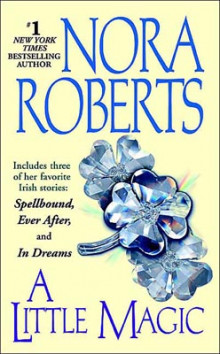 A Little Magic
A Little Magic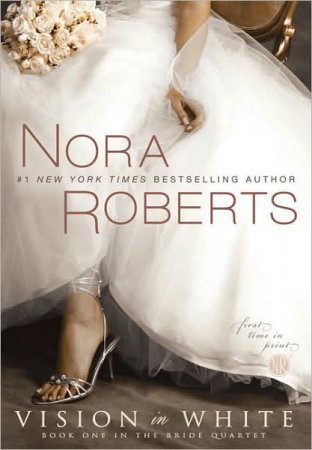 Vision in White
Vision in White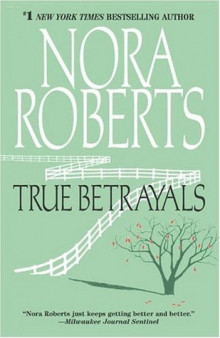 True Betrayals
True Betrayals The Next Always
The Next Always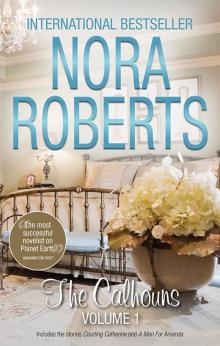 A Man for Amanda
A Man for Amanda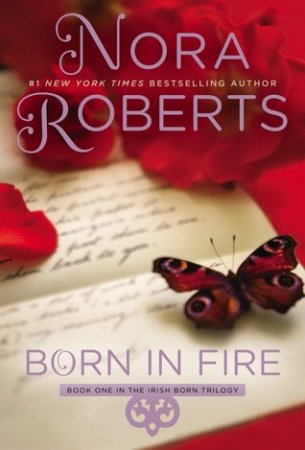 Born in Fire
Born in Fire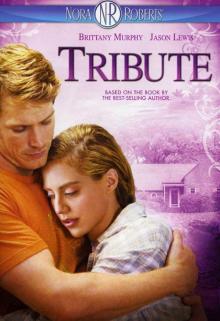 Tribute
Tribute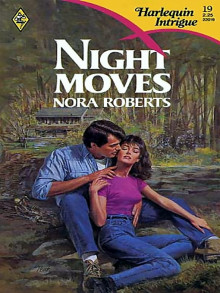 Night Moves
Night Moves Dance Upon the Air
Dance Upon the Air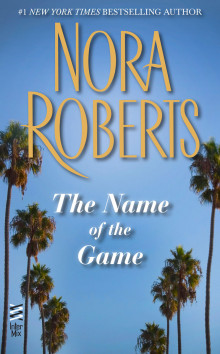 The Name of the Game
The Name of the Game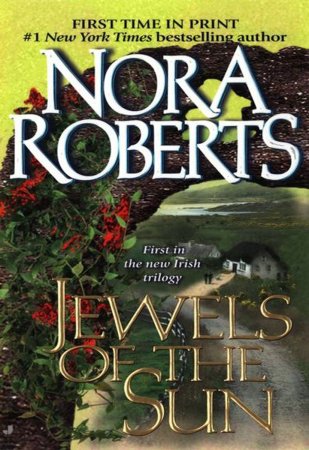 Jewels of the Sun
Jewels of the Sun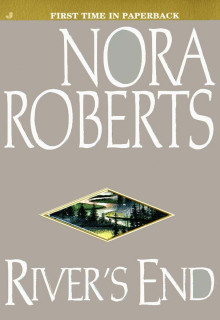 River's End
River's End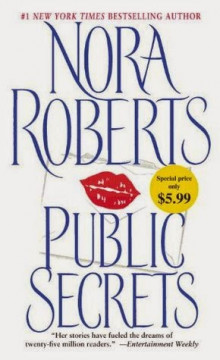 Public Secrets
Public Secrets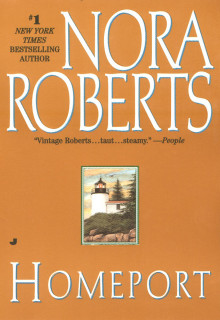 Homeport
Homeport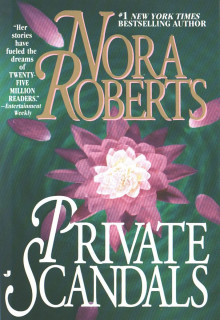 Private Scandals
Private Scandals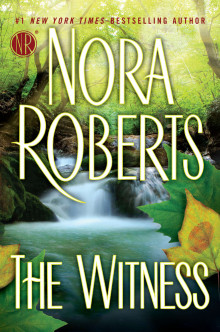 The Witness
The Witness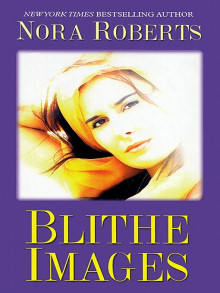 Blithe Images
Blithe Images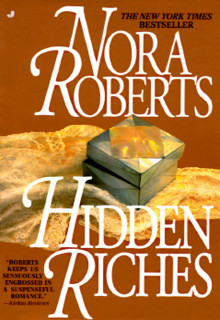 Hidden Riches
Hidden Riches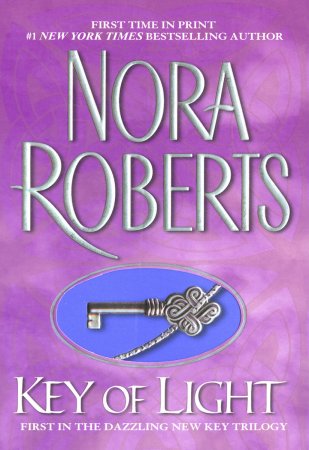 Key of Light
Key of Light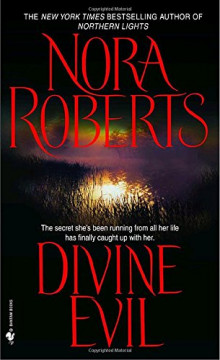 Divine Evil
Divine Evil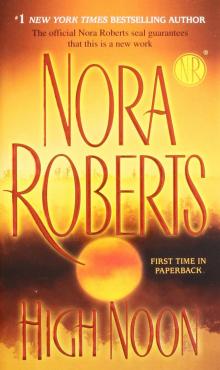 High Noon
High Noon Blue Dahlia
Blue Dahlia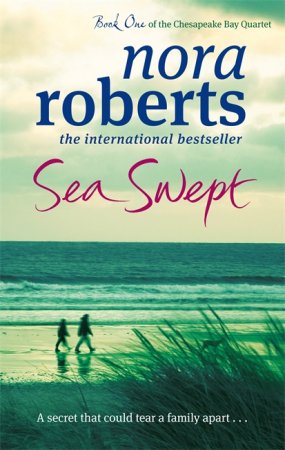 Sea Swept
Sea Swept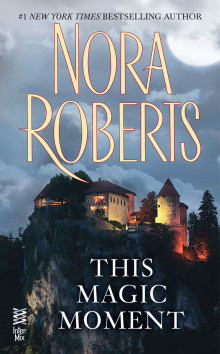 This Magic Moment
This Magic Moment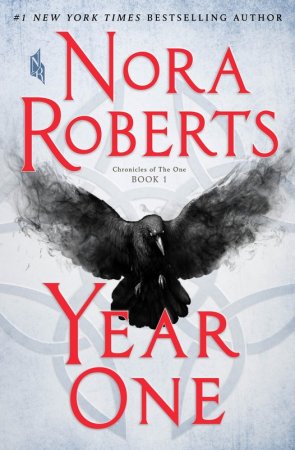 Year One
Year One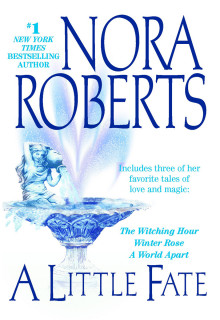 A Little Fate
A Little Fate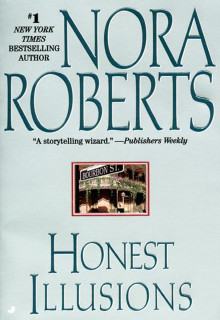 Honest Illusions
Honest Illusions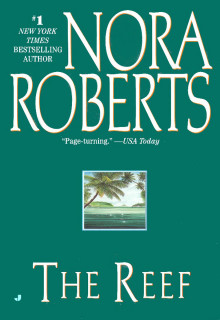 The Reef
The Reef Shelter in Place
Shelter in Place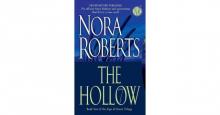 The Hollow
The Hollow Holding the Dream
Holding the Dream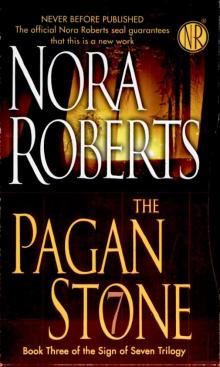 The Pagan Stone
The Pagan Stone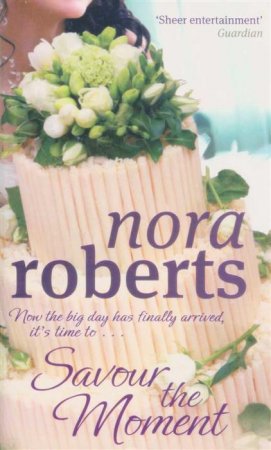 Savour the Moment
Savour the Moment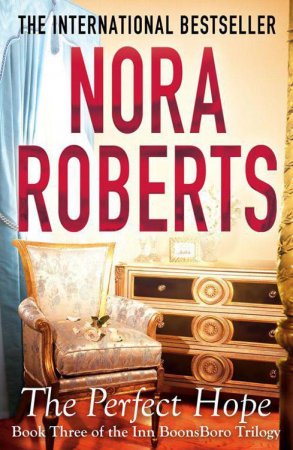 The Perfect Hope
The Perfect Hope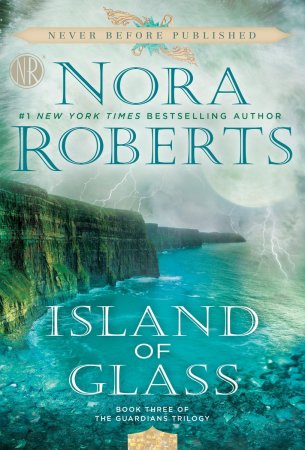 Island of Glass
Island of Glass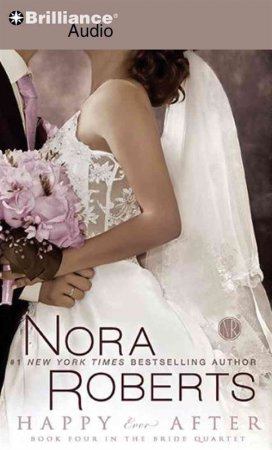 Happy Ever After
Happy Ever After Bed of Roses
Bed of Roses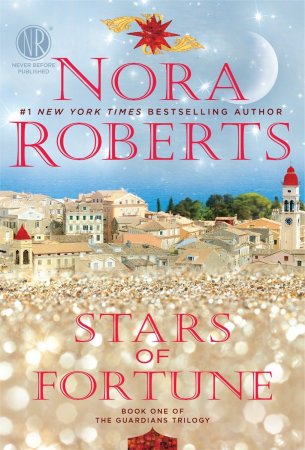 Stars of Fortune
Stars of Fortune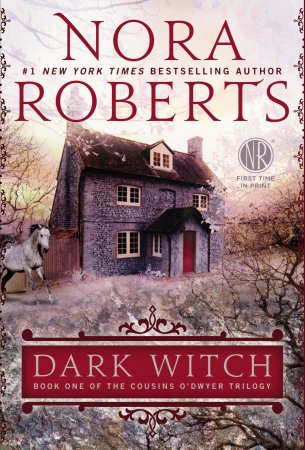 Dark Witch
Dark Witch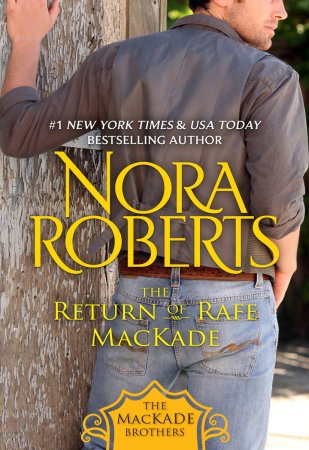 The Return of Rafe MacKade
The Return of Rafe MacKade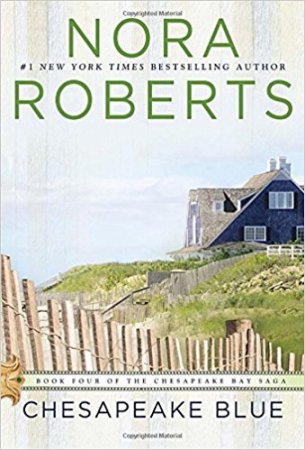 Chesapeake Blue
Chesapeake Blue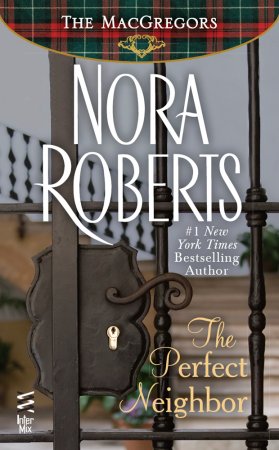 The Perfect Neighbor
The Perfect Neighbor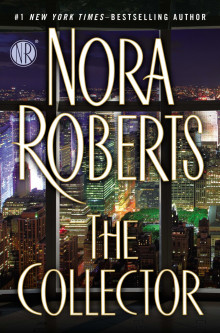 The Collector
The Collector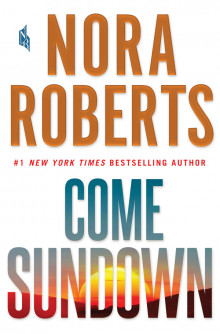 Come Sundown
Come Sundown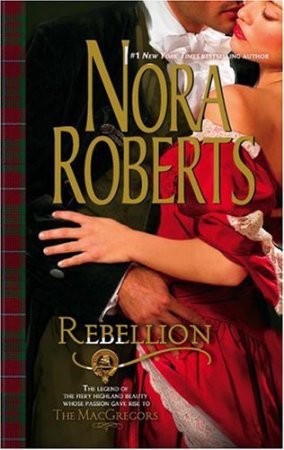 Rebellion
Rebellion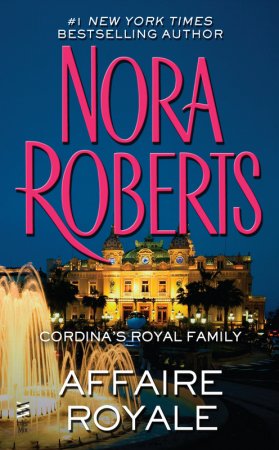 Affaire Royale
Affaire Royale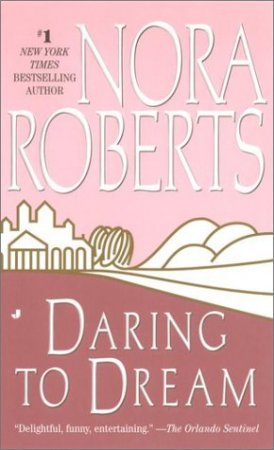 Daring to Dream
Daring to Dream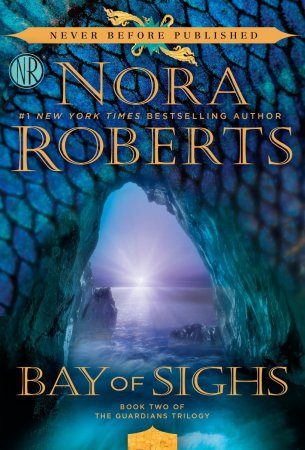 Bay of Sighs
Bay of Sighs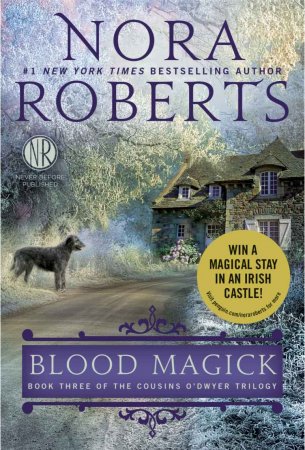 Blood Magick
Blood Magick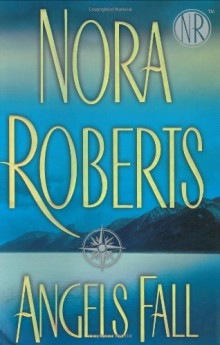 Angels Fall
Angels Fall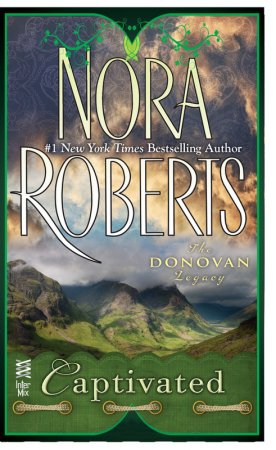 Captivated
Captivated The Last Boyfriend
The Last Boyfriend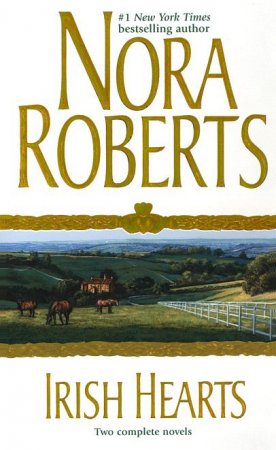 Irish Thoroughbred
Irish Thoroughbred Inner Harbor
Inner Harbor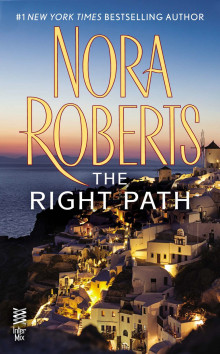 The Right Path
The Right Path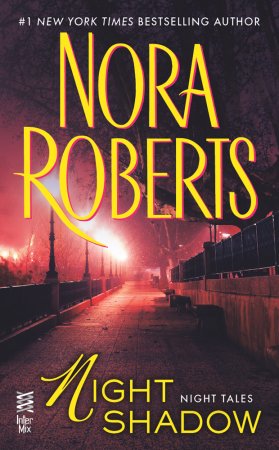 Night Shadow
Night Shadow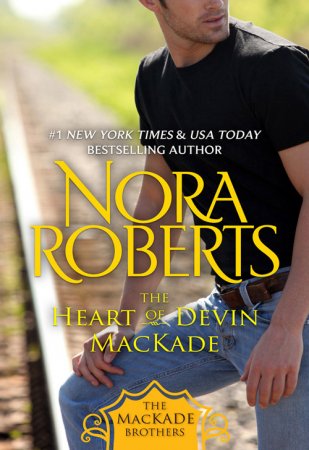 The Heart of Devin MacKade
The Heart of Devin MacKade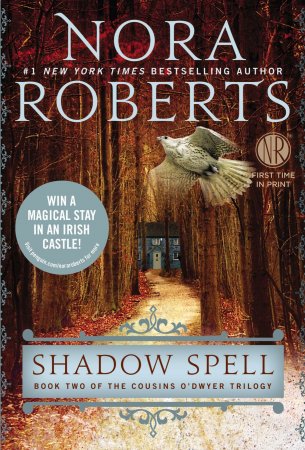 Shadow Spell
Shadow Spell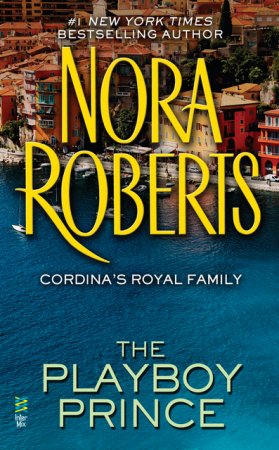 The Playboy Prince
The Playboy Prince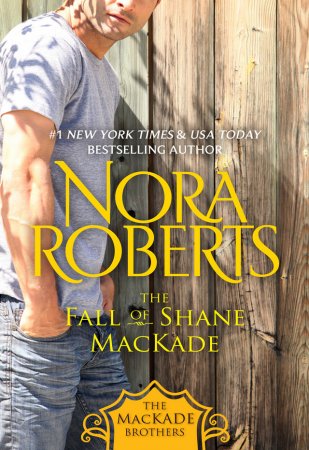 The Fall of Shane MacKade
The Fall of Shane MacKade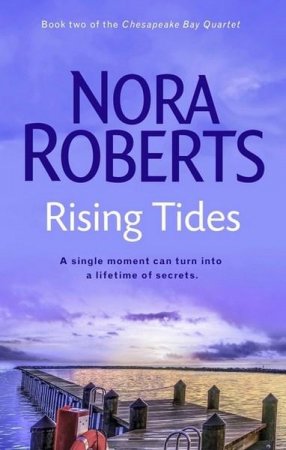 Rising Tides
Rising Tides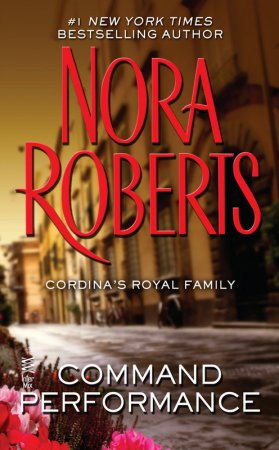 Command Performance
Command Performance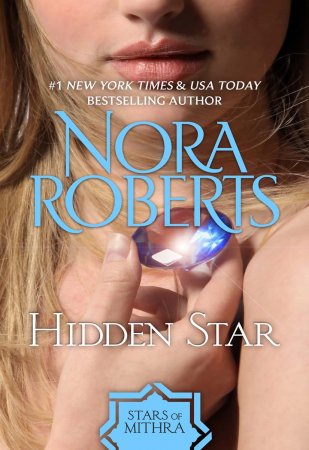 Hidden Star
Hidden Star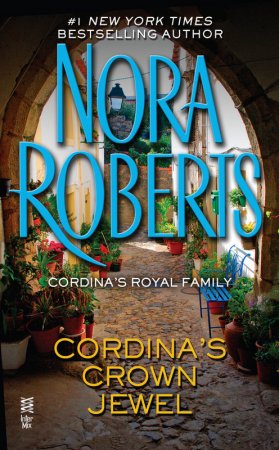 Cordina's Crown Jewel
Cordina's Crown Jewel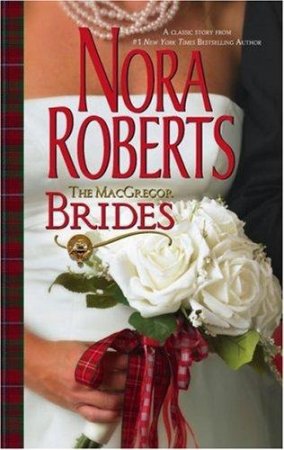 The MacGregor Brides
The MacGregor Brides The Pride of Jared MacKade
The Pride of Jared MacKade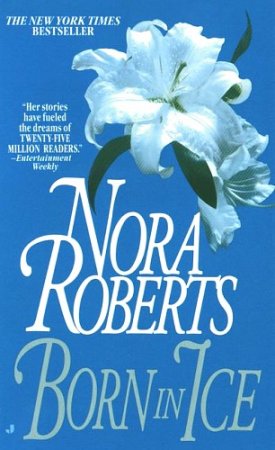 Born in Ice
Born in Ice Whiskey Beach
Whiskey Beach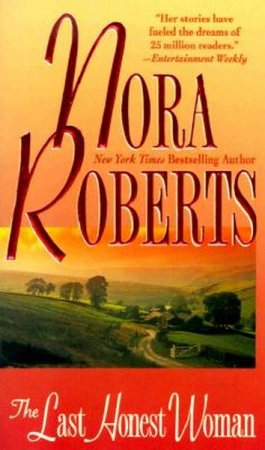 The Last Honest Woman
The Last Honest Woman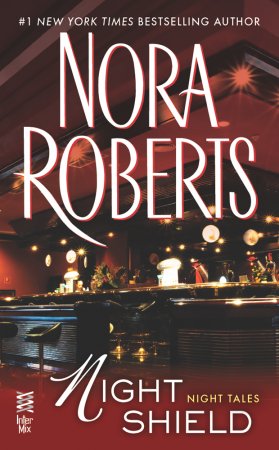 Night Shield
Night Shield Born in Shame
Born in Shame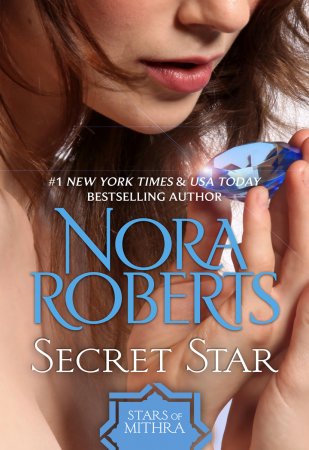 Secret Star
Secret Star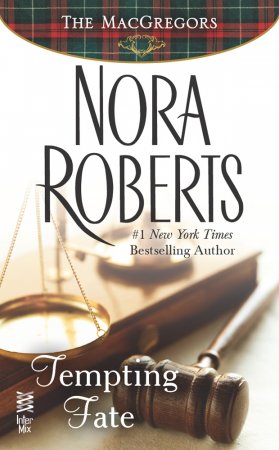 Tempting Fate
Tempting Fate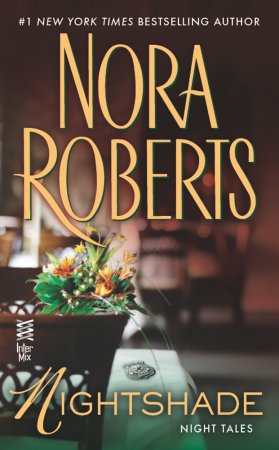 Nightshade
Nightshade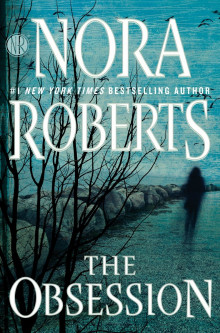 The Obsession
The Obsession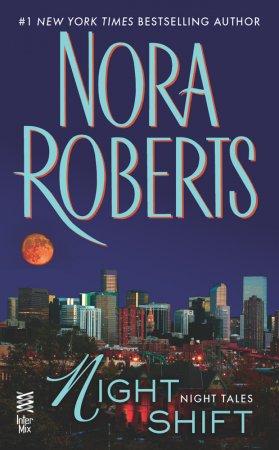 Night Shift
Night Shift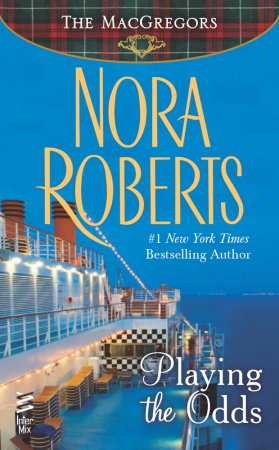 Playing The Odds
Playing The Odds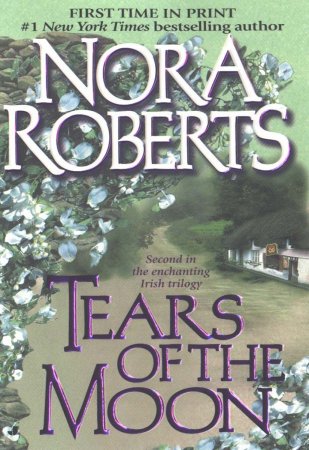 Tears of the Moon
Tears of the Moon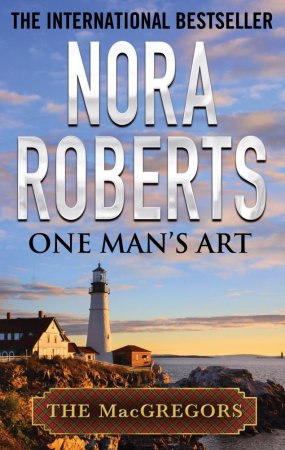 One Man's Art
One Man's Art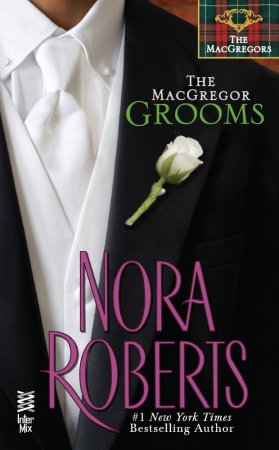 The MacGregor Groom
The MacGregor Groom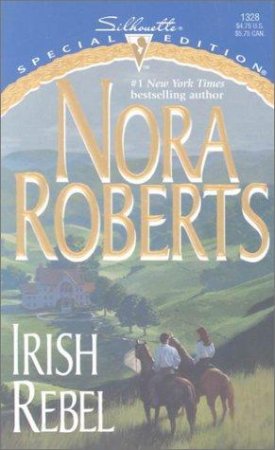 Irish Rebel
Irish Rebel Morrigan's Cross
Morrigan's Cross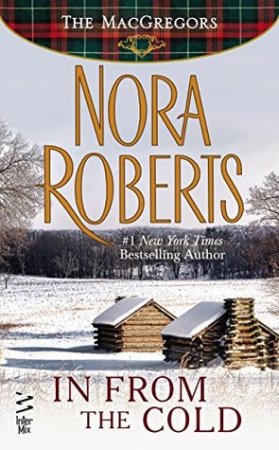 In From The Cold
In From The Cold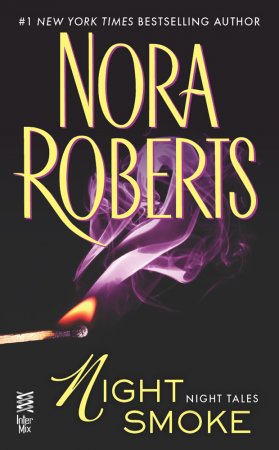 Night Smoke
Night Smoke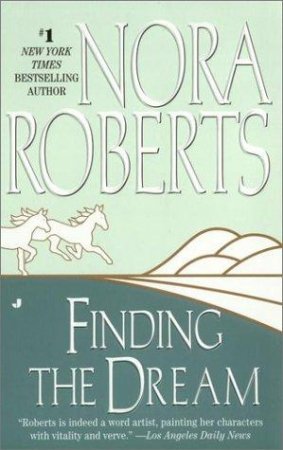 Finding the Dream
Finding the Dream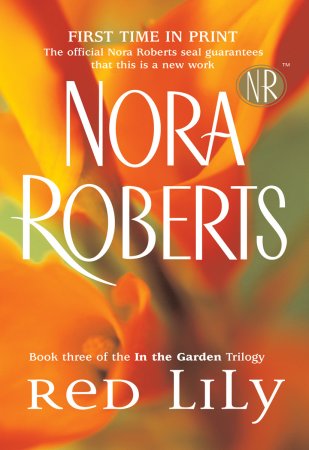 Red Lily
Red Lily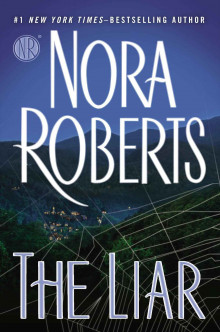 The Liar
The Liar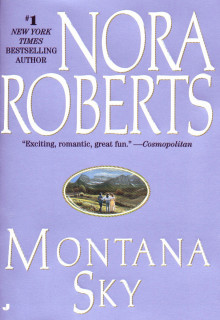 Montana Sky
Montana Sky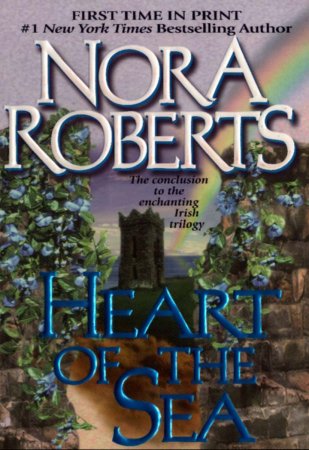 Heart of the Sea
Heart of the Sea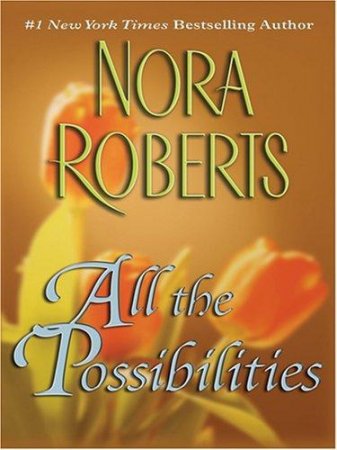 All The Possibilities
All The Possibilities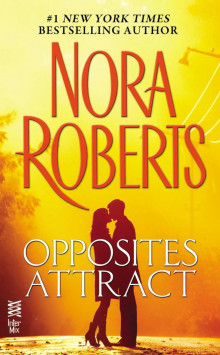 Opposites Attract
Opposites Attract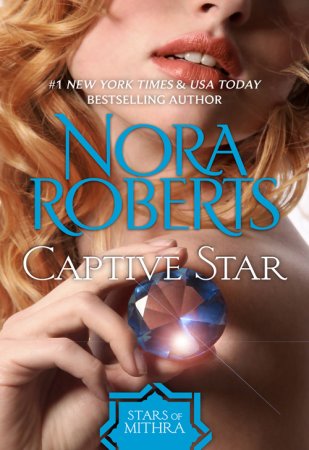 Captive Star
Captive Star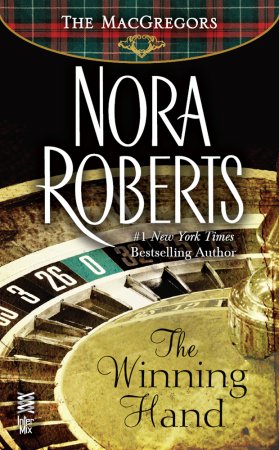 The Winning Hand
The Winning Hand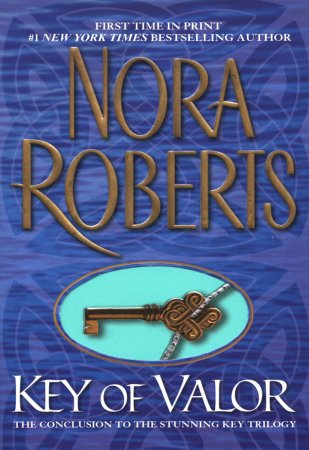 Key of Valor
Key of Valor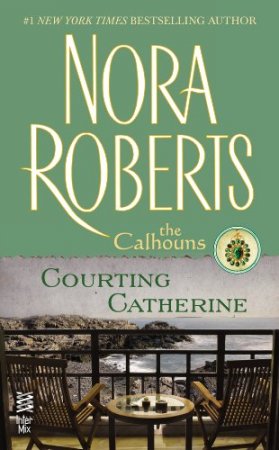 Courting Catherine
Courting Catherine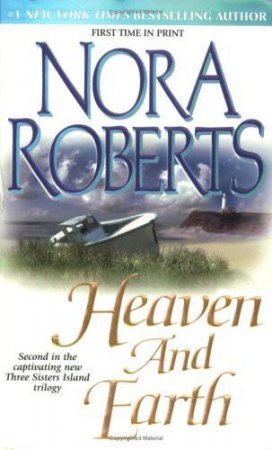 Heaven and Earth
Heaven and Earth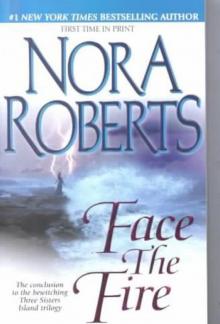 Face the Fire
Face the Fire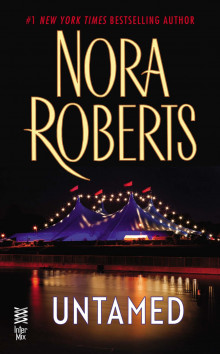 Untamed
Untamed Skin Deep
Skin Deep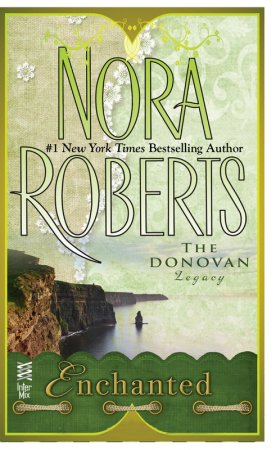 Enchanted
Enchanted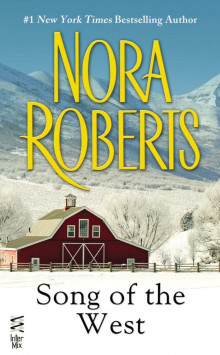 Song of the West
Song of the West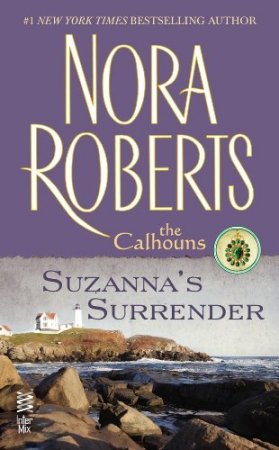 Suzanna's Surrender
Suzanna's Surrender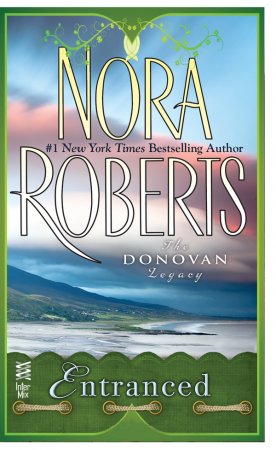 Entranced
Entranced Dance of the Gods
Dance of the Gods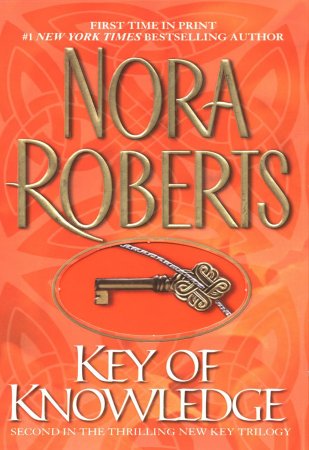 Key of Knowledge
Key of Knowledge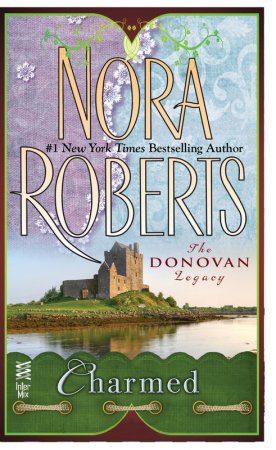 Charmed
Charmed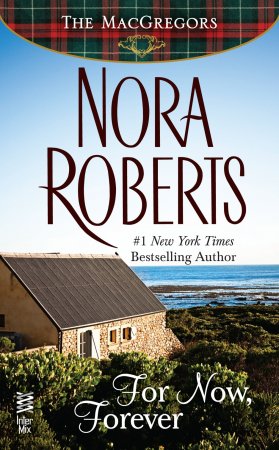 For Now, Forever
For Now, Forever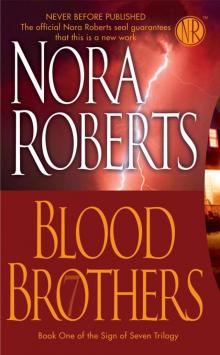 Blood Brothers
Blood Brothers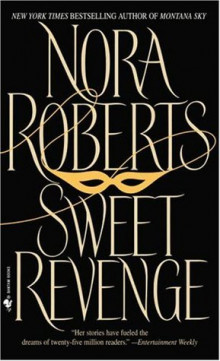 Sweet Revenge
Sweet Revenge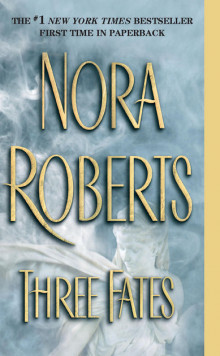 Three Fates
Three Fates Mind Over Matter
Mind Over Matter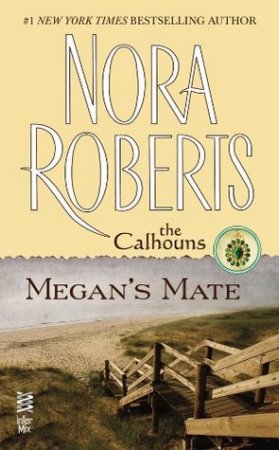 Megan's Mate
Megan's Mate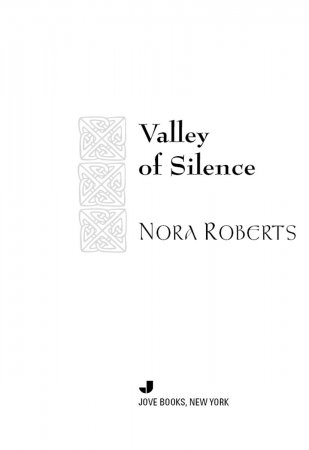 Valley of Silence
Valley of Silence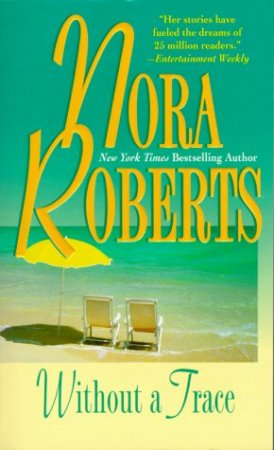 Without A Trace
Without A Trace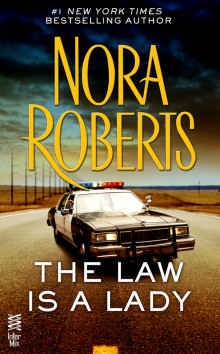 The Law is a Lady
The Law is a Lady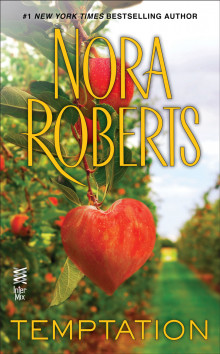 Temptation
Temptation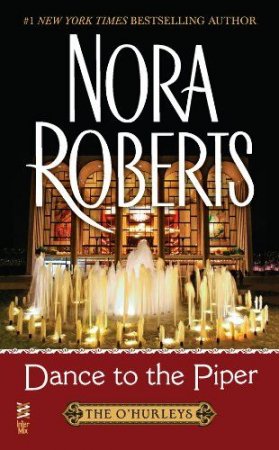 Dance to the Piper
Dance to the Piper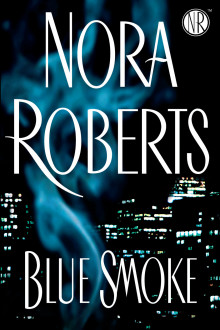 Blue Smoke
Blue Smoke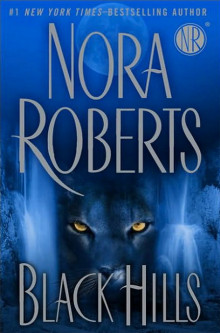 Black Hills
Black Hills The Heart's Victory
The Heart's Victory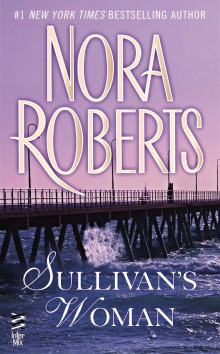 Sullivan's Woman
Sullivan's Woman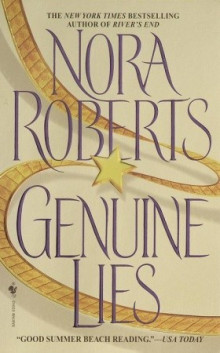 Genuine Lies
Genuine Lies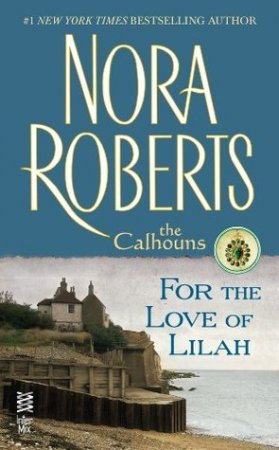 For the Love of Lilah
For the Love of Lilah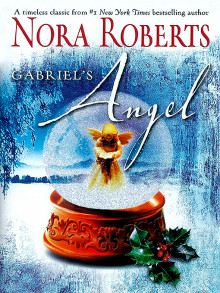 Gabriel's Angel
Gabriel's Angel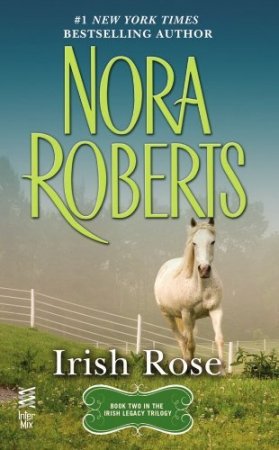 Irish Rose
Irish Rose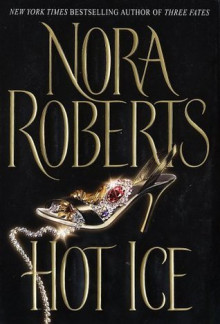 Hot Ice
Hot Ice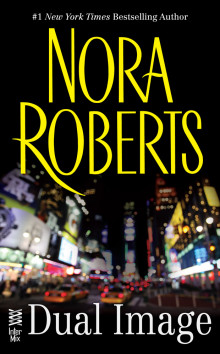 Dual Image
Dual Image Lawless
Lawless Catch My Heart
Catch My Heart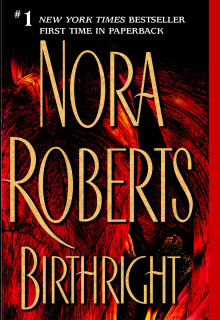 Birthright
Birthright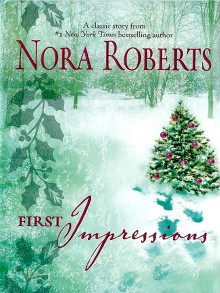 First Impressions
First Impressions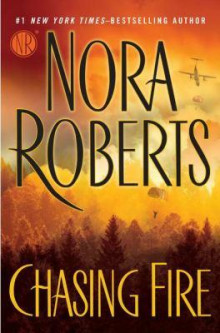 Chasing Fire
Chasing Fire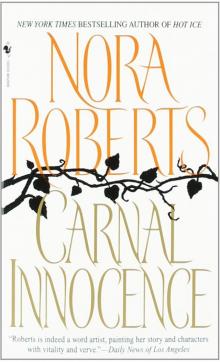 Carnal Innocence
Carnal Innocence Best Laid Plans
Best Laid Plans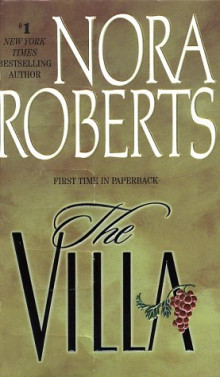 The Villa
The Villa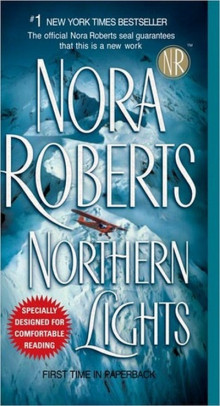 Northern Lights
Northern Lights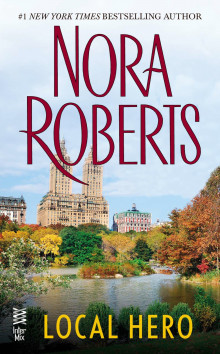 Local Hero
Local Hero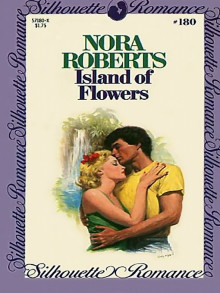 Island of Flowers
Island of Flowers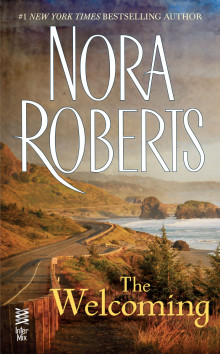 The Welcoming
The Welcoming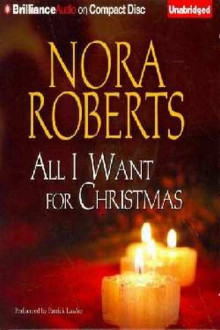 All I Want for Christmas
All I Want for Christmas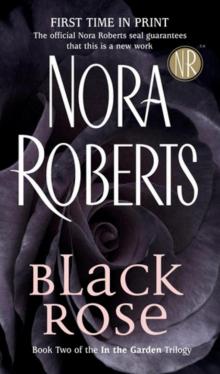 Black Rose
Black Rose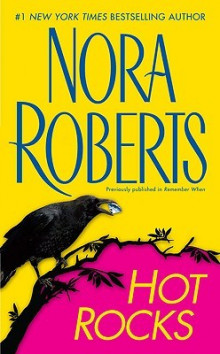 Hot Rocks
Hot Rocks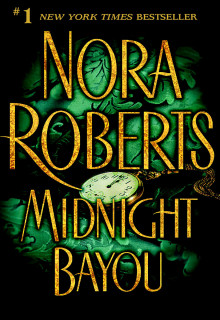 Midnight Bayou
Midnight Bayou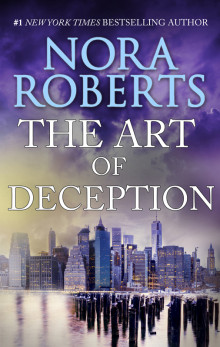 The Art of Deception
The Art of Deception From This Day
From This Day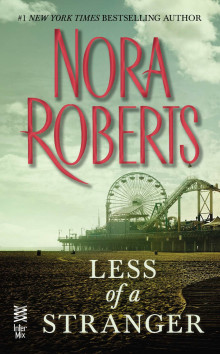 Less of a Stranger
Less of a Stranger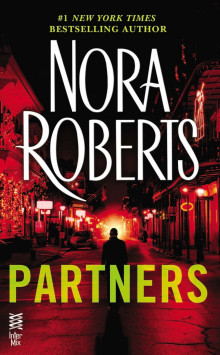 Partners
Partners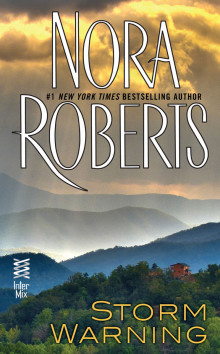 Storm Warning
Storm Warning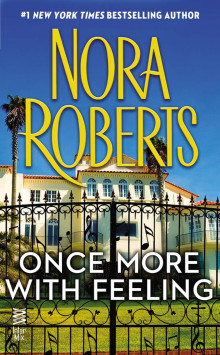 Once More With Feeling
Once More With Feeling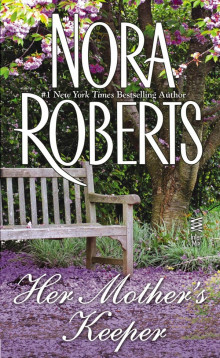 Her Mother's Keeper
Her Mother's Keeper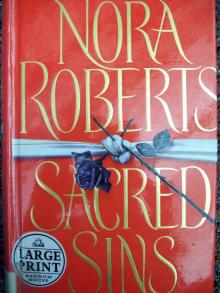 Sacred Sins
Sacred Sins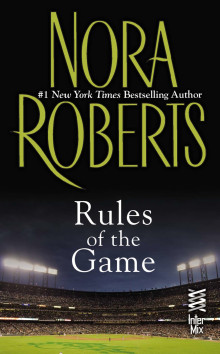 Rules of the Game
Rules of the Game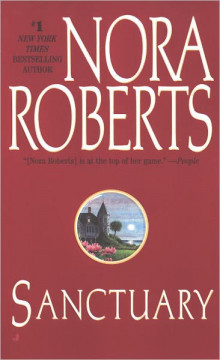 Sanctuary
Sanctuary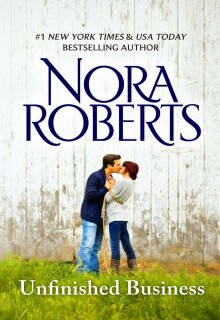 Unfinished Business
Unfinished Business Cordina's Royal Family Collection
Cordina's Royal Family Collection Dangerous Embrace
Dangerous Embrace One Summer
One Summer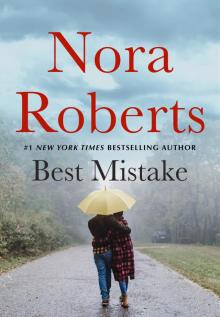 The Best Mistake
The Best Mistake Boundary Lines
Boundary Lines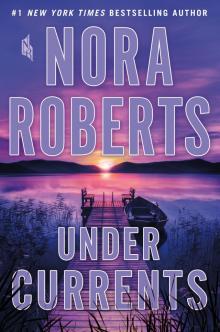 Under Currents
Under Currents The Stanislaski Series Collection, Volume 1
The Stanislaski Series Collection, Volume 1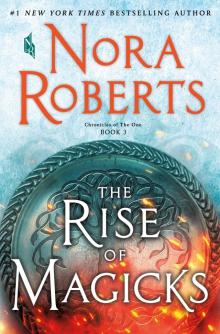 The Rise of Magicks
The Rise of Magicks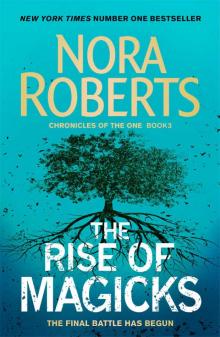 The Rise of Magicks (Chronicles of The One)
The Rise of Magicks (Chronicles of The One)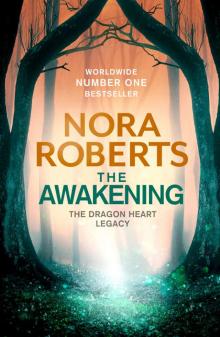 The Awakening: The Dragon Heart Legacy Book 1
The Awakening: The Dragon Heart Legacy Book 1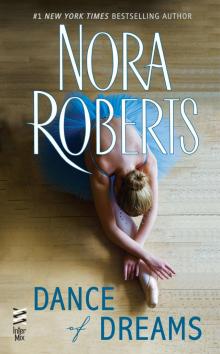 Dance of Dreams
Dance of Dreams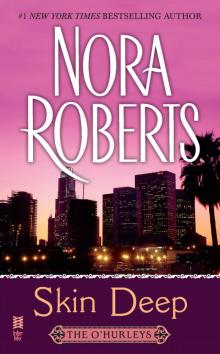 Skin Deep: The O'Hurleys
Skin Deep: The O'Hurleys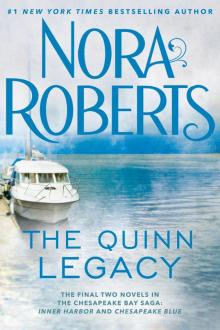 The Quinn Legacy: Inner Harbor ; Chesapeake Blue
The Quinn Legacy: Inner Harbor ; Chesapeake Blue![[Chronicles of the One 03.0] The Rise of Magicks Read online](http://i1.bookreadfree.com/11/chronicles_of_the_one_03_0_the_rise_of_magicks_preview.jpg) [Chronicles of the One 03.0] The Rise of Magicks
[Chronicles of the One 03.0] The Rise of Magicks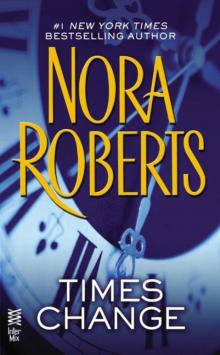 Times Change
Times Change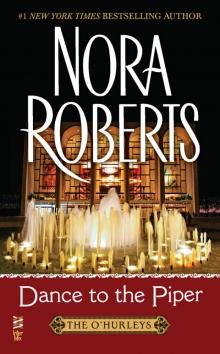 Dance to the Piper: The O'Hurleys
Dance to the Piper: The O'Hurleys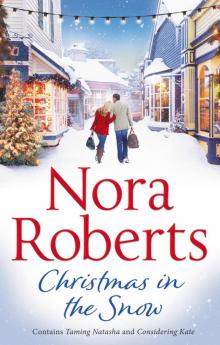 Christmas In the Snow: Taming Natasha / Considering Kate
Christmas In the Snow: Taming Natasha / Considering Kate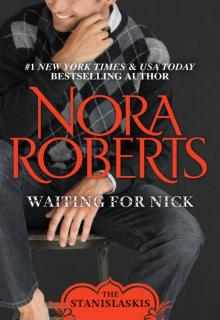 Waiting for Nick
Waiting for Nick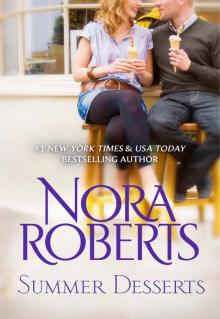 Summer Desserts
Summer Desserts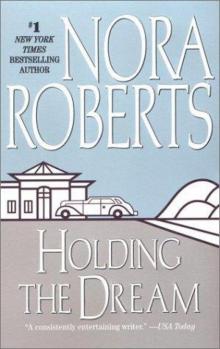 Dream 2 - Holding the Dream
Dream 2 - Holding the Dream The Novels of Nora Roberts, Volume 2
The Novels of Nora Roberts, Volume 2 In the Garden Trilogy
In the Garden Trilogy Eight Classic Nora Roberts Romantic Suspense Novels
Eight Classic Nora Roberts Romantic Suspense Novels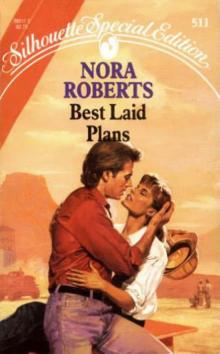 Best Laid Plans jh-2
Best Laid Plans jh-2 From the Heart
From the Heart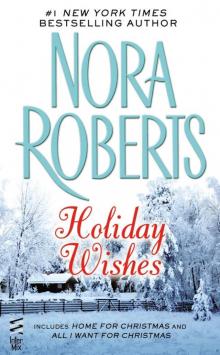 Holiday Wishes
Holiday Wishes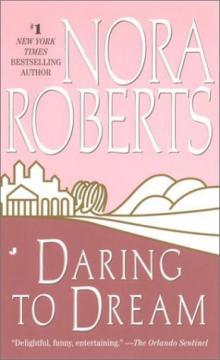 Dream 1 - Daring to Dream
Dream 1 - Daring to Dream Second Nature
Second Nature Summer Pleasures
Summer Pleasures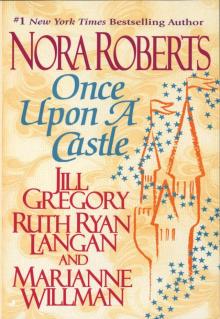 Once Upon a Castle
Once Upon a Castle Stars of Mithra Box Set: Captive StarHidden StarSecret Star
Stars of Mithra Box Set: Captive StarHidden StarSecret Star Impulse
Impulse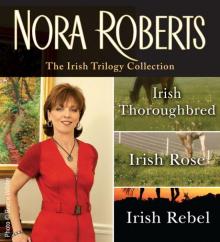 The Irish Trilogy by Nora Roberts
The Irish Trilogy by Nora Roberts The Pride Of Jared Mackade tmb-2
The Pride Of Jared Mackade tmb-2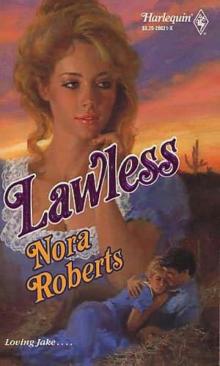 Lawless jh-3
Lawless jh-3 Taming Natasha
Taming Natasha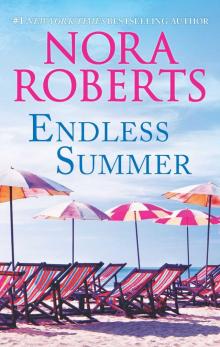 Endless Summer
Endless Summer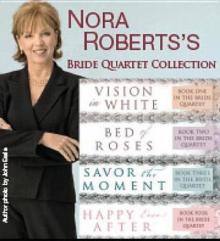 Bride Quartet Collection
Bride Quartet Collection Happy Ever After tbq-4
Happy Ever After tbq-4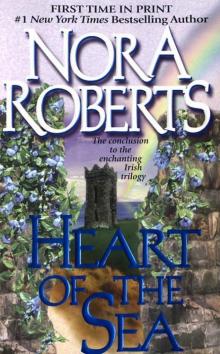 Heart Of The Sea goa-3
Heart Of The Sea goa-3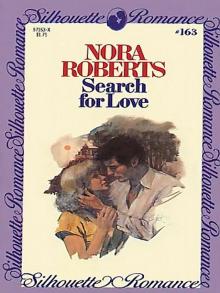 Search for Love
Search for Love Once upon a Dream
Once upon a Dream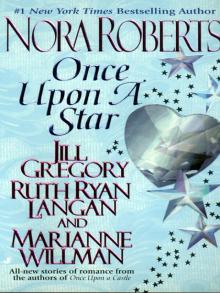 Once Upon a Star
Once Upon a Star Dream Trilogy
Dream Trilogy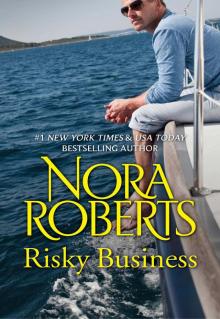 Risky Business
Risky Business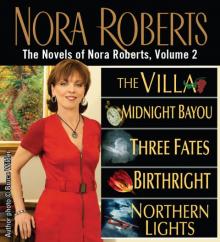 The Novels of Nora Roberts, Volume 3
The Novels of Nora Roberts, Volume 3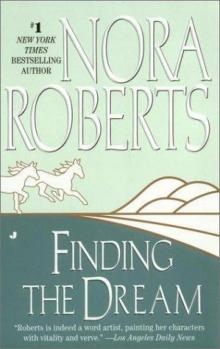 Dream 3 - Finding the Dream
Dream 3 - Finding the Dream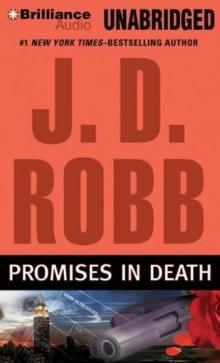 Promises in Death id-34
Promises in Death id-34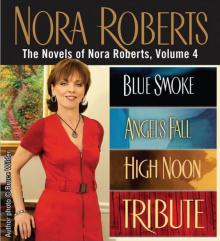 The Novels of Nora Roberts, Volume 4
The Novels of Nora Roberts, Volume 4 The Perfect Hope ib-3
The Perfect Hope ib-3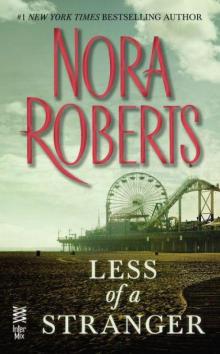 Less than a Stranger
Less than a Stranger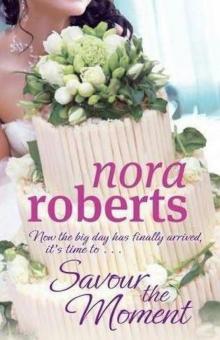 Savour the Moment: Now the Big Day Has Finally Arrived, It's Time To...
Savour the Moment: Now the Big Day Has Finally Arrived, It's Time To... Convincing Alex
Convincing Alex Bed of Roses tbq-2
Bed of Roses tbq-2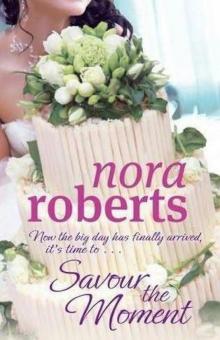 Savour the Moment tbq-3
Savour the Moment tbq-3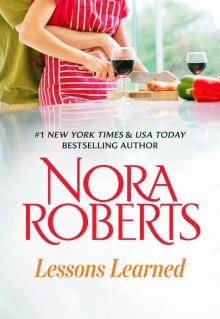 Lessons Learned
Lessons Learned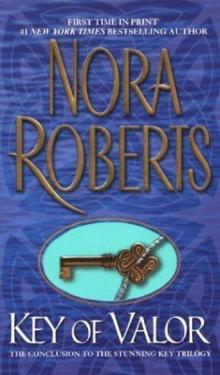 Key Of Valor k-3
Key Of Valor k-3 Red lily gt-3
Red lily gt-3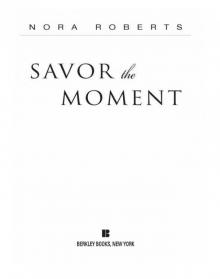 Savor the Moment
Savor the Moment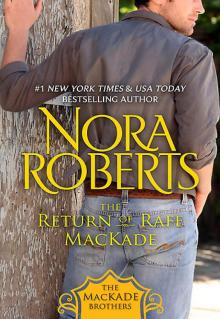 The Return Of Rafe Mackade tmb-1
The Return Of Rafe Mackade tmb-1 For The Love Of Lilah tcw-3
For The Love Of Lilah tcw-3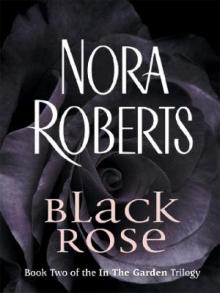 Black Rose gt-2
Black Rose gt-2 Novels: The Law is a Lady
Novels: The Law is a Lady Chesapeake Bay Saga 1-4
Chesapeake Bay Saga 1-4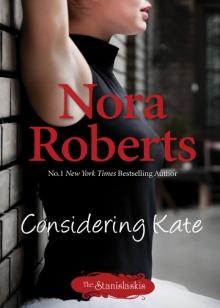 Considering Kate
Considering Kate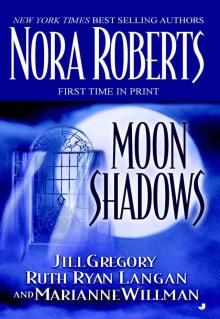 Moon Shadows
Moon Shadows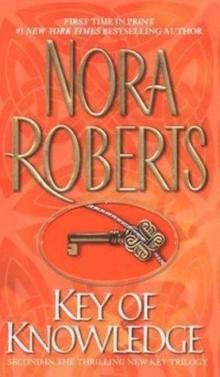 Key of Knowledge k-2
Key of Knowledge k-2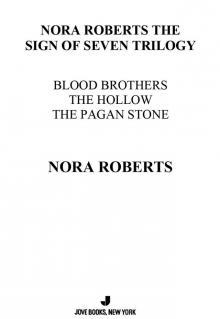 The Sign of Seven Trilogy
The Sign of Seven Trilogy Once Upon a Kiss
Once Upon a Kiss The Novels of Nora Roberts, Volume 5
The Novels of Nora Roberts, Volume 5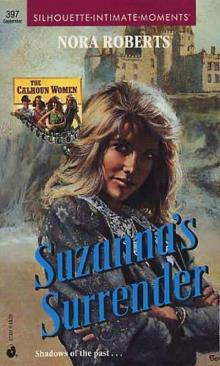 Suzanna's Surrender tcw-4
Suzanna's Surrender tcw-4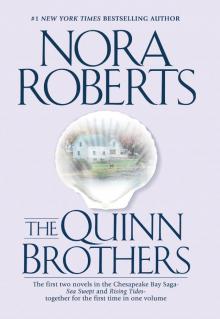 The Quinn Brothers
The Quinn Brothers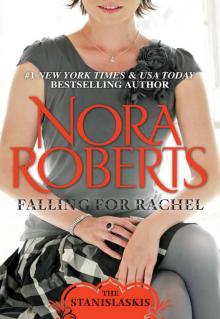 Falling for Rachel
Falling for Rachel Brazen Virtue
Brazen Virtue Time Was
Time Was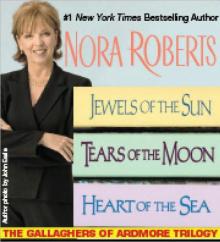 The Gallaghers of Ardmore Trilogy
The Gallaghers of Ardmore Trilogy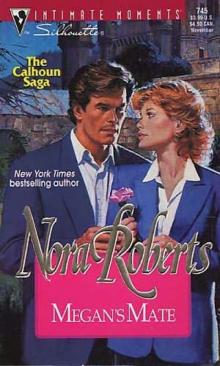 Megan's Mate tcw-5
Megan's Mate tcw-5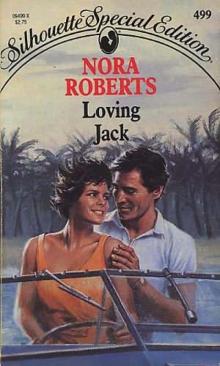 Loving Jack jh-1
Loving Jack jh-1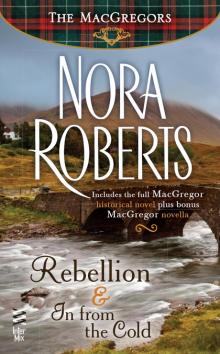 Rebellion & In From The Cold
Rebellion & In From The Cold Blue Dahlia gt-1
Blue Dahlia gt-1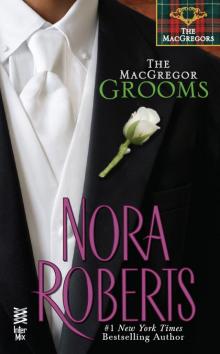 The MacGregor Grooms
The MacGregor Grooms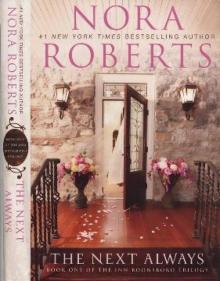 The Next Always tibt-1
The Next Always tibt-1 The Heart Of Devin Mackade tmb-3
The Heart Of Devin Mackade tmb-3 The Novels of Nora Roberts Volume 1
The Novels of Nora Roberts Volume 1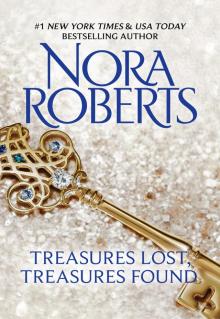 Treasures Lost, Treasures Found
Treasures Lost, Treasures Found Nora Roberts's Circle Trilogy
Nora Roberts's Circle Trilogy The Key Trilogy
The Key Trilogy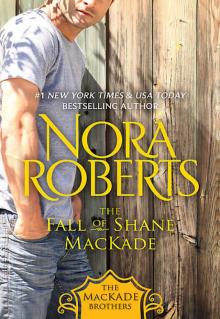 The Fall Of Shane Mackade tmb-4
The Fall Of Shane Mackade tmb-4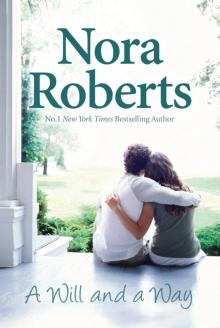 A Will And A Way
A Will And A Way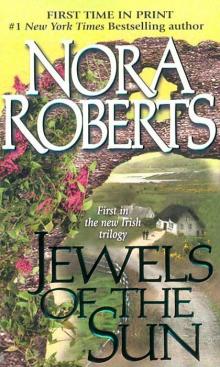 Jewels of the Sun goa-1
Jewels of the Sun goa-1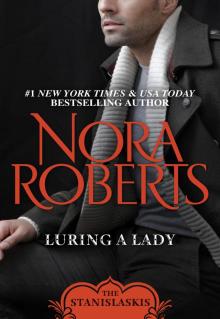 Luring a Lady
Luring a Lady